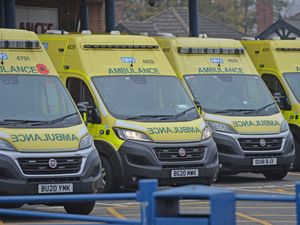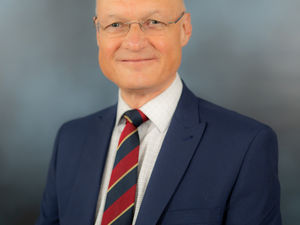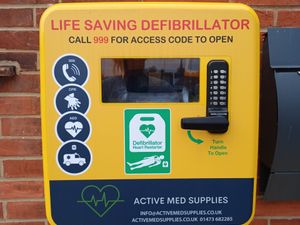New 'Shropshire-only' ambulance service called for as long 999 waits continue
The Government is to be asked to set up a dedicated ambulance trust for Shropshire in response to years of alleged “neglect” by West Midlands Ambulance Service.

Councillors said a Shropshire-only service was needed in order to address the needs and challenges of a large rural county, accusing the regional service of prioritising the urban areas.
Shropshire Council has also pledged to push ambulance and hospital bosses for an action plan to address the current crisis of soaring response times.
However West Midlands Ambulance Service, which currently runs ambulances in Shropshire, has said that investment in the current system is the answer and not a 'Shropshire-only' service.
The issue was raised at a meeting of the full council by Liberal Democrat councillor Heather Kidd, who sits on the authority’s health scrutiny committee and the joint health overview and scrutiny committee (JHOSC) with Telford & Wrekin.
Councillor Kidd said the county had suffered from an “incredibly poor ambulance service” for more than a decade, recalling raising the issue at a JHOSC meeting back in 2010.
Her motion called for the council to facilitate meetings between the ambulance service and the trust in charge of the county’s two acute hospitals, and to lobby Government for additional ambulances to be made available to serve the county to help ease current pressures.
But Councillor Dean Carroll, cabinet member for physical infrastructure, proposed going one step further and pushing for a breakaway ambulance service to be created for Shropshire.
He said: “I spent two-and-a-half years as the cabinet member for adult social care and public health, and during that time I was engaged in seemingly mortal combat with WMAS.
“They seem to be completely indifferent to the needs of Shropshire, prioritising their overall response times which are dependant on the greater mass of population concentrated in the seven metropolitan boroughs of the West Midlands.
“As you have quite rightly said, this is not to do with the pandemic – this is a far more fundamental problem.”
Councillor Carroll said previous pleas from the council to WMAS to rethink the closure of the county’s four community ambulance stations last year were “totally ignored”.
Community stations in Oswestry, Market Drayton, Craven Arms and Bridgnorth have all been closed at a time where the ambulance service is under more pressure than ever before, with many paramedics stuck off the road outside hospitals waiting to handover patients.
Councillor Carroll added: “There is no way we can get sustained improvement in our ambulance services while they are tied to the seven metropolitan boroughs of the West Midlands.
"We need an ambulance service that is purpose-designed for a large rural community.
“We can certainly operate blue light services as a county – we operate an extremely successful fire and rescue authority – and we can emulate that model to provide an equally successful service in ambulances that responds to the needs of the residents of Shropshire.”
Murray MacGregor, communications director for WMAS, accepted that the performance in Shropshire was not good enough, but said a 'Shropshire-only' service was not the answer.
Mr MacGregor said current problems with the service related to the difficulties ambulances face in handovers at Shropshire hospitals, meaning the county is a 'net importer of 17 ambulances a day' from the rest of the West Midlands.
He said matching response times from urban areas such as Birmingham would cost twice as much as the current service, and added that WMAS would be better placed to run the service if the council could secure that level of funding.
He said: "Clearly if they want to go down this road they are an elected body and are entitled to do so.
"But the previous Shropshire ambulance service was amalgamated because it could not cope on its own – it was too small.
"The risk of setting up a Shropshire ambulance service is it would be too small.
"There was a situation between Christmas and new Year where 25 of the 28 ambulances in Shropshire were stuck outside Shropshire hospitals and the only way we were able to get to patients in Shropshire was because we brought other ambulances in from other parts of the region.
"If it was Shropshire on its own that would not have happened."
Last year WMAS increased the risk rating for handover delays to the highest ever level for the first time in its history as it warned that patients were being put at "catastrophic" risk.
There have been multiple examples of patients facing waits of around 10 hours for ambulances in Shropshire, while paramedics have faced similar delays waiting for hospitals to take patients off their hands.
Mr MacGregor said the service had considered what would be needed to match the response times seen in urban areas.
He added: "We are appalled at how long it is taking us to get to jobs. Just this week we have had 13-hour waits to get patients transferred into hospital and unless that changes we will continue to get long delays."
Mr MacGregor also suggested that the council could help by addressing a lack of social care places to discharge people from hospital, which he said was having a significant impact on hospitals and in turn ambulances.
Councillor Carroll said the motion would send a “very strong message”, adding that the council would seek the support of the county’s MPs and other large rural counties in the region “that suffer from similar neglect by WMAS”.
Councillor Nick Bardsley, seconding Councillor Carroll’s amendment, said one problem contributing to lengthy response times was that ambulance control staff did not know the geography of Shropshire, adding: “An ambulance service which has its roots in Shropshire is far more likely to understand the needs of a rural community.”
Liberal Democrat group leader David Vasmer said that while he supported the proposal to call for a new service to be created in the longer-term, there was also a need “to deal with it here and now”.
Councillor Vasmer said: “We need to deal with the problems people are facing and the fact people are dying as a result of delays in the ambulances.”
Councillor Kidd accepted Councillor Carroll’s amendment and the motion was unanimously supported by all councillors present.





